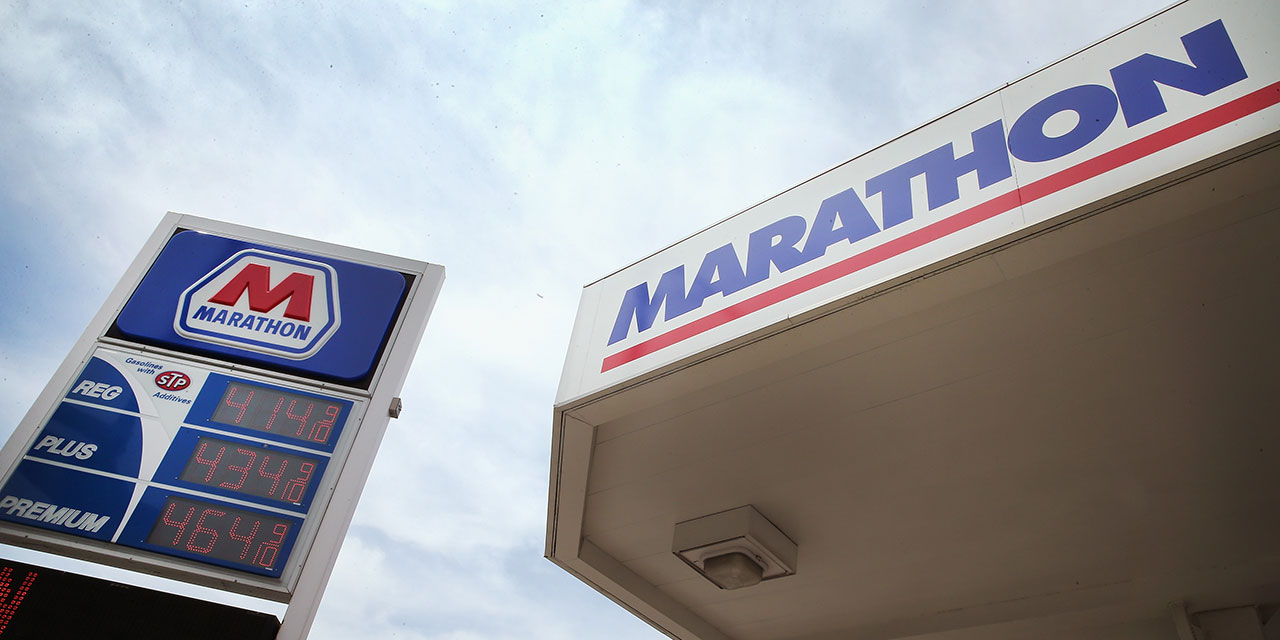
Most Americans don’t associate the oil-and-gas sector with left-wing race and gender ideologies. Working in the industry is physically demanding, highly technical, and sometimes extremely dangerous. But in recent years, the Marathon Petroleum Corporation, which operates some of the largest crude oil refineries in the United States, has engaged in a full-throated embrace of racialist “diversity, equity and inclusion” initiatives.
In 2021, Marathon’s then-CEO, Mike Hennigan, wrote an all-staff email announcing a significant change to its employee bonus programs. The company would now calculate awards, in part, on meeting “diversity” goals, or racial quotas. In practice, this meant all Marathon employees’ bonuses would be negatively affected if the company failed to hit its minority hiring targets.
Finally, a reason to check your email.
Sign up for our free newsletter today.
“You may recall that in 2020 we introduced the Sustainability metric, made up of four components,” Hennigan wrote. “For 2021, we’ve updated the name of this metric to Environmental, Social and Governance (ESG) to better reflect the specific issues many of our stakeholders are focused on. We’ve also introduced a new component for Diversity, Equity and Inclusion, as part of our commitment to improving the diversity of our workforce. MPC is the first independent downstream energy company in the U.S. to link improving diversity to our annual bonus programs.”
The new DEI metric would focus on “people we hire from outside the company,” Hennigan continued, noting that the company would be “even more intentional about considering women and racially/ethnically diverse candidates whenever we have open roles.” A graphic embedded in the email revealed Marathon’s goals for the demographic composition of its 2021 external hires: 30 percent women, and 30 percent racial minorities, or “BIPOC” (for black, indigenous, and people of color).
Marathon was financially incentivizing hiring managers to select candidates based on their race and sex. As the company made plain on a since-deleted page on its website, “We link executive and employee compensation to DE&I metrics.”
“I was infuriated,” said one long-time Marathon employee, who spoke with City Journal on the condition of anonymity. “It was something of a culture shock. The Marathon headquarters is in the middle of Ohio. It’s a very conservative area. . . . You also had this process where they had to have a BIPOC or a woman on the [shortlist] for any job. And when you weren’t choosing a minority, you had to have written justification for why they were not picked.”
Yet the employee was not surprised. At the time, Marathon was pushing a range of DEI initiatives across the company—including identity-based employee affinity groups and mandatory unconscious bias training. “There was a lot of diversity training they were having people go to,” the employee said. “At one event they were talking about how people just showing up to work on time was white privilege, or a white cultural thing. A Latina coworker said to me, ‘This is the most racist thing I’ve ever heard in my life.’”
In its annual sustainability reports, Marathon promoted its commitment to “supplier diversity,” which involved funneling procurement contracts to businesses owned or operated by women or racial minorities. Between 2020 and 2023, Marathon’s annual spending on “diverse suppliers” went from $277 million to $795 million—an increase of 187 percent.
But the new DEI metric wasn’t the only change to the employee bonus programs that Marathon announced in 2021. In the same all-staff email, Hennigan included a graphic noting that the company would remove its Marathon Safety Performance Index metric from bonus calculations. In other words: DEI in, safety out. It was an eyebrow-raising decision, considering that the oil-and-gas sector sees consistently elevated rates of workplace injuries and deaths.
Ten months after Hennigan announced the changes to the employee bonus programs, Marathon suffered its first in a string of high-profile “significant injury and fatality events.” In February 2022, an explosion at a Marathon facility in Louisiana injured four workers and resulted in an OSHA fine. In October of that year, another explosion at the same facility left two workers with serious burns and brought another OSHA fine. In November, an employee at the same facility died after a workplace accident. The following year, a 25-year-old contract worker at Marathon’s Galveston Bay Refinery died from an electric shock, and a 55-year-old machinist burned to death in an explosion at the same facility.
While this string of safety events cannot be definitively tied to the new formula for bonus compensation, they underscore the importance of embracing safety over ideology. And one long-time Marathon employee saw the rebalancing of the formula as indicative of a broader change.
“It was a culture shift,” the employee said. “They were moving that focus, that spotlight, [from safety], onto people’s gender, onto their race. It’s reflective of what we care about as a company, so it was disheartening to see.”
In a written statement, a Marathon spokesperson said the company evaluates its bonus metrics annually, and that it prioritizes “protecting our people, communities, and the environment,” including through its metrics. The spokesperson also added that “while we included an aspirational representation component for a period of time, among other safety and financial metrics, our hiring, talent development, and advancement outcomes were and continue to be merit-based.”
Institutions are built on incentives. When a company such as Marathon prioritizes diversity over safety, it will get more diversity and less safety. This is almost tautological, but it’s easily forgotten by executives who have put fashionable ideologies above the profit motive, the principle of colorblind equality, and even the safety of their workers.
Photo by Scott Olson/Getty Images
City Journal is a publication of the Manhattan Institute for Policy Research (MI), a leading free-market think tank. Are you interested in supporting the magazine? As a 501(c)(3) nonprofit, donations in support of MI and City Journal are fully tax-deductible as provided by law (EIN #13-2912529).
Source link


















